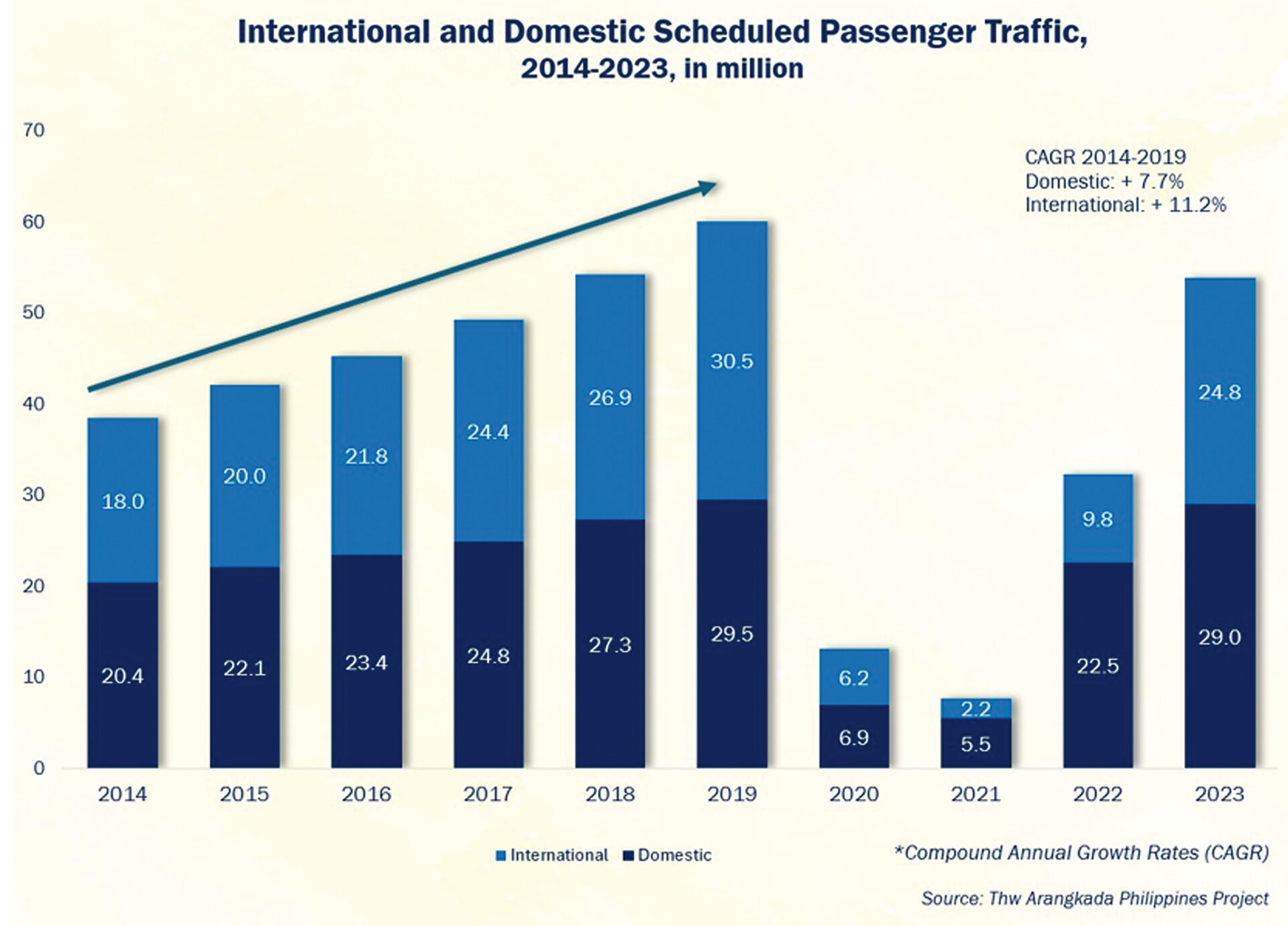Foreign businessmen are calling for the amendment of the Civil Aeronautics Act of 1952 to strengthen the Civil Aeronautics Board (CAB) as an independent economic regulator at a time when airport operations are handed to private companies.
This is one of the recommendations of the Joint Foreign Chambers (JFC) in the “Philippine Air Transport Infrastructure: A Policy Brief Update” under its advocacy arm The Arangkada Philippines Project.
The policy brief said CAB should be modernized as an economic regulator “with a strong mandate to promote consumer interests in a globalized and highly liberalized aviation market. “
“As the ownership of airports changes from public to private hands, economic regulation may become more necessary to ensure airport service pricing promotes welfare of airport users,” the policy brief said.
The proposal is to integrate airport economic regulatory functions in the CAB mandate.
The policy brief said the Department of Transportation had proposed that in the interim, it will create an intra-agency office under the Aviation and Airports Sector which will perform the economic regulator functions over airports.
There are seven live airport contracts under the public-private partnership arrangement: NAIA, Cebu, Clark, Caticlan, Cagayan LIa-lo, New Manila (Bulacan), and Sangley Point (Cavite)
The policy brief also reiterated its recommendation to form a body that will oversee airport operations and development separate from the Civil Aviation Authority of the Philippines (CAAP) which will focus solely on regulatory oversight.
“Such a division is crucial for streamlining operations, enhancing safety, and ensuring that Philippine airports meet global standards,” the policy brief said.
JFC added the delinking of functions removes the inefficiencies and conflict of interest present in the multiple roles of the CAAP as as regulator, commercial operator of airports, and investigator.
The JFC also recommended the creation of an independent Philippine Transportation Safety Board (PTSB) to conduct objective investigations into aviation incidents for better accountability and transparency.
The paper said the current approach to transportation and passenger safety and investigation is fragmented and lacks independence.
“Transport agencies perform multiple and conflicting functions as regulators, operators, and investigators.
This gap in the bureaucracy provides a compelling reason to effect institutional reforms to enhance the standards of transportation safety measures, prevent transportation accidents in the future, and mitigate danger to human lives and property, “the policy brief said.
However, the creation of a Philippine Airports Authority and of the PTSB are not part of the legislative priorities of the administration although the latter reached the most advanced stage among these reforms.
The brief noted air transport in the Philippines has now achieved 89 percent of its pre-pandemic gross value-added, with increased domestic travel and expanded international routes boosting connectivity.
“While recent developments have shown great improvement in Philippine air transport, achieving a higher standard that can consistently support and sustain economic growth demands not only infrastructure upgrades, but also bold reforms to the governance of air transport,” said the policy paper, an update of one done in 2016.





